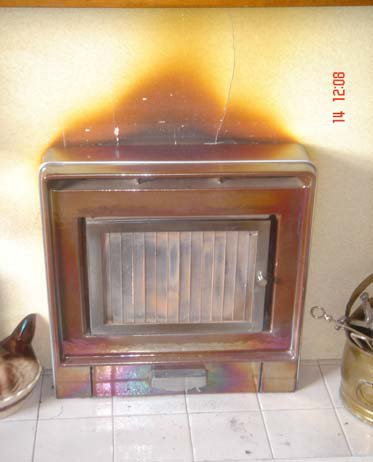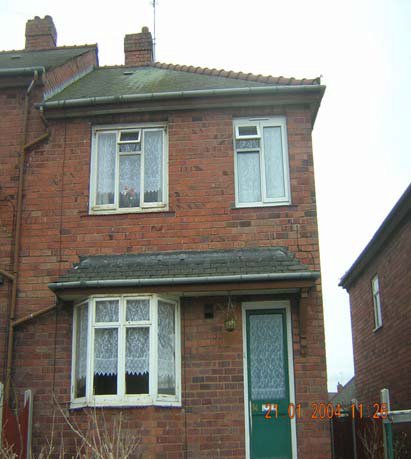

06 (IDeA - 01)
July 2006
CARBON MONOXIDE AND FUEL COMBUSTION PRODUCTS
HHSRS 07/06
Yes
Yes
No
No
Vulnerable age
Related hazards
All persons aged 65 years and over
Fire/ Sulphur dioxide and smoke/
Cold
Multiple locations
Secondary hazards
DESCRIPTION OF HAZARDS
DWELLING:
End-terrace house built in 1952
Background: The house is of traditional brick construction with pitched slate roof and suspended timber
floors. The accommodation consists of living room, dining room and kitchen on the ground floor with three
bedrooms and combined WC/ bathroom on the first floor. The living room on the ground floor is heated by a
sealed solid fuel room heating appliance. There is a back boiler which is a means of providing hot water for
domestic purposes. The installation (including flue) has not been checked for at least 4 years and now
exhibits problems in combusting smokeless solid fuel efficiently, there is no permanent ventilation to the room
although the timber casement windows are ill-fitting and draughty. The ventilation to the sub-floor space is
also blocked.
LIST OF RELEVANT MATTERS
LIKELIHOOD & OUTCOMES
Secondary Hazards
-
# Compounding matters
-
None
A
B
-
-
a
Open flued appliances
3
b
Flueless appliances
-
c
Disrepair to appliance
3
d
Inadequate ventilation
3
e
Disrepair to ventilation
2
f
State of flues
2
g
Disrepair to flues
-
h
Flue outlet siting
-
i
Extractor fans
-
j
Ventilation lobby
-
k
CO detectors
2
Key
3
Seriously defective
2
Defective
1
Not satisfactory
-
Satisfactory/NA
06 (IDeA - 01)
July 2006
HEALTH AND SAFETY RATING SYSTEM SCORES
LIKELIHOOD
Low
High
1 in 2
Av: 1946-79 Non-HMOs: 870
2
< 4200 2400 1300 750 420 240 130
75
42
24
13
7.5
4
2.5
1.5 >
Justification
Lack of proper ventilation and the failure to ensure the flue is clear and in repair increases
the chance of incomplete combustion and for carbon monoxide to leak back into the room.
In the heating season this appliance will be in use continuously and will be emitting gases
into the room. It is likely that the vulnerable group would be spending a considerable
amount of time in the living room. There is no evidence of combustion products leaking
from the flue into upper rooms (which would increase the likelihood) but a specialist report
should be obtained.
OUTCOMES
%
Av: 1946-79 Non- HMOs: 0.0
Class I
0
< 0.05 0.15 0.3
0.7
1.5
3
7
15
26
38 >
Av: 0.0
Class II
0
< 0.05 0.15 0.3
0.7
1.5
3
7
15
26
38 >
Av: 2.0
Class III
2.2
< 0.05 0.15 0.3
0.7
1.5
3
7
15
26
38 >
Av: 98.0
Class IV
97.8
< 0.05 0.15 0.3
0.7
1.5
3
7
15
26
38 >
Justification
Although the nationally reported average spread of harms are probably under-estimates
there is nothing to justify changing the outcomes from the average.
Av. 1946-79 Non-HMOs: 2
RATING
A
B
C
D
E
F
G
H
I
J
Score:
819
RATING SCORES AFTER IMPROVEMENT
IMPROVE
Likelihood
1 in 1000
Outcomes to
0
0.0
2.0 98.0
%
Justification
Repair/ servicing or replacement of the room heater, ensuring the flue is clear and
provision of adequate permanent ventilation would return the property to average for this
hazard.
Av: 2
NEW RATING
A
B
C
D
E
F
G
H
I
J
Score:
2
Av: Nos
Average likelihood and health outcomes for all persons aged 65 years and over, 1997-99.